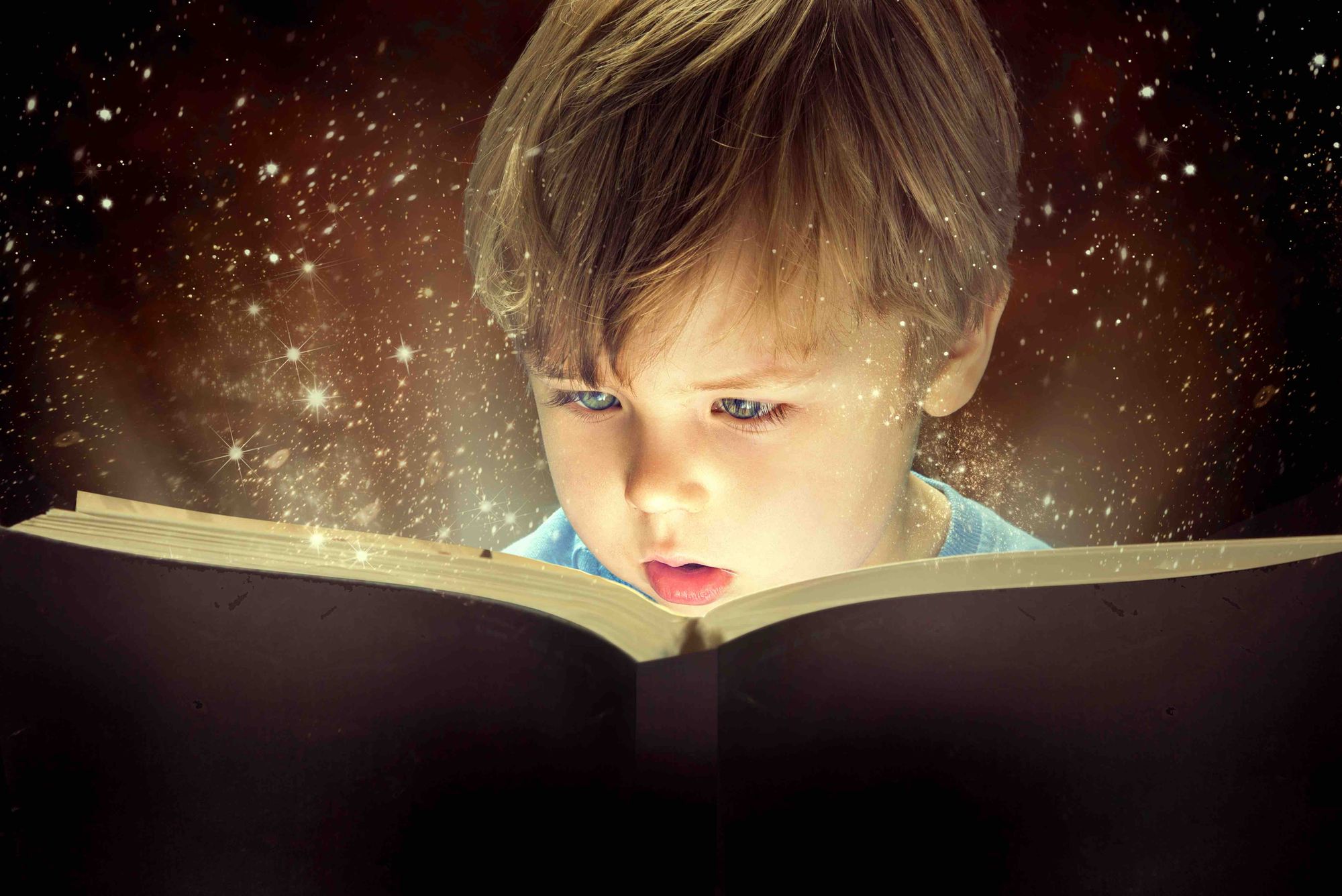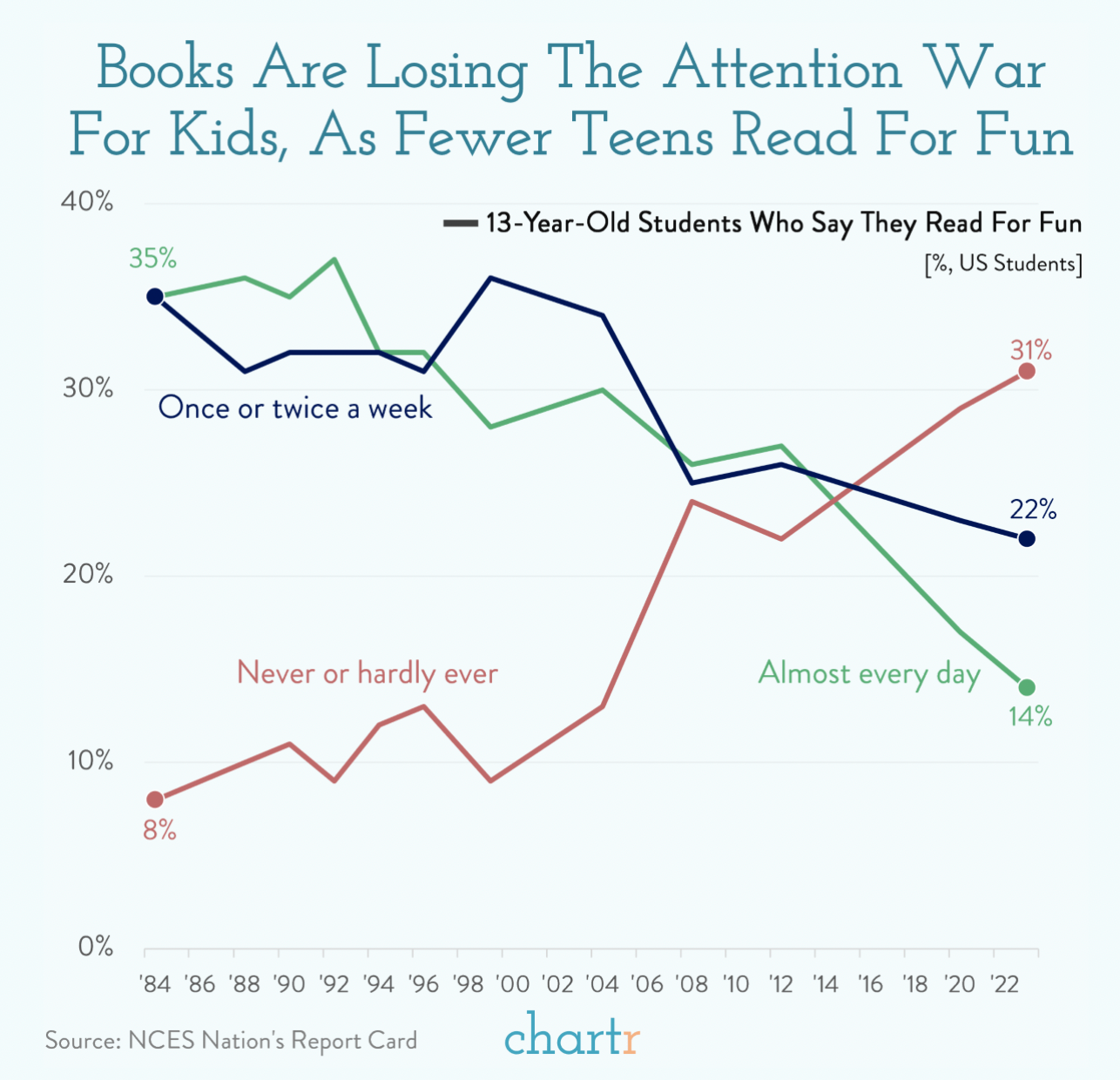Kids & Books.
"Books are a uniquely portable magic.” -Stephen King

“A reader lives a thousand lives before he dies . . . The man who never reads lives only one.” George R.R. Martin writer of A Song of Ice and Fire which became the HBO series Game of Thrones
Reading books is formative for our children. “Just exposure to words is the single most important thing that you can do to help build the language pathways in your child’s brain,” says Laura Phillips, PsyD, the senior director of the Learning and Development Center at the Child Mind Institute. “Reading and exposure to words helps kids maximize their language and cognitive capacity.”1
Troubling data says 13-year-olds are buried in a good novel. Only 14% say they "read for fun" almost every day according to the latest National Assessment of Educational Progress.2

The survey runs parallel to the federal test referred to as the nation's report card, which revealed that Math and English scores for 13-year-olds have fallen to their lowest level in decades. Focusing on reading specifically, the average scores have fallen from 260 to 256 compared to 2020 and now stand 7 points below the 2012 average score of 263.
Reading for pleasure correlates with improved test performance, as students who reported reading for fun almost every day scored on average 275, surpassing those who read less frequently in their spare time. The slow demise of "reading for fun", with instant gratification being the norm for so many of us. Perhaps most concerning is the 31% of students who reported "never or hardly ever" reading for fun, up from just 9% in 1999. 3
I am not a big fan of standardized testing but the results are difficult to ignore when correlated with our children's reading habits.
Until next time, travel safe.
Endnotes
- Hannah Sheldon-Dean, Why Is It Important to Read to Your Child? The Child Mind Institute, Accessed June 6, 2023, https://childmind.org/article/why-is-it-important-to-read-to-your-child/
- U.S. Department of Education, Institute of Education Sciences, National Center for Education Statistics, National Assessment of Educational Progress (NAEP), various years, 1971–2023 Long-Term Trend (LTT) Reading and Mathematics Assessments.
- U.S. Department of Education, Institute of Education Sciences, National Center for Education Statistics, National Assessment of Educational Progress (NAEP), various years, 1971–2023 Long-Term Trend (LTT) Reading and Mathematics Assessments.

